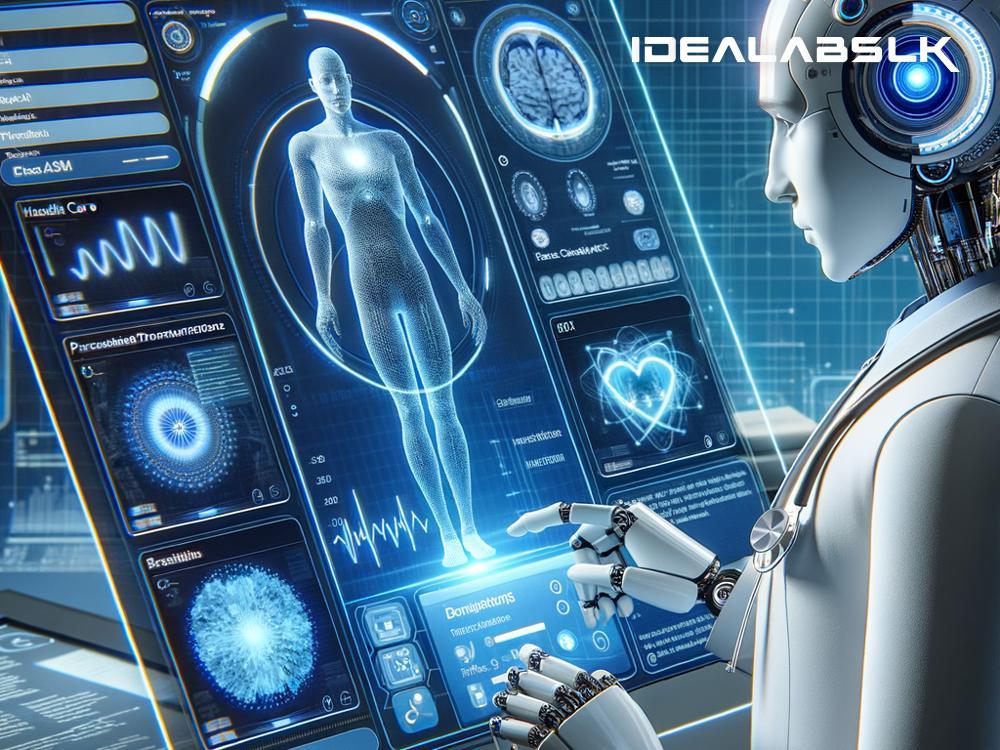The Role of AI in Future Healthcare UX: A Simpler Look
Introduction
Imagine a world where going to a doctor is as easy as talking to your phone, where waiting rooms are a thing of the past, and personalized health advice is just a click away. This isn't a scene from a sci-fi movie. It's the near future of healthcare, thanks to Artificial Intelligence (AI). AI is like a super smart assistant that learns and improves over time. In healthcare, it’s set to transform how we experience everything from diagnosis to treatment. Let’s explore how AI is reshaping the future healthcare user experience (UX).
1. Breaking Down Barriers
One of the first things AI is changing in healthcare is accessibility. Right now, seeing a doctor can mean waiting weeks for an appointment, taking time off work, and traveling. With AI, you could have a virtual consultation from your couch, 24/7. AI chatbots can ask questions based on your symptoms, offer advice, and even schedule follow-up appointments. This doesn’t just save you time; it makes healthcare more accessible to people living in remote areas.
2. Predictive Personalization
Each person is unique, so why should healthcare be one-size-fits-all? AI is like a tailored suit in the world of healthcare, designed to fit each person perfectly. By analyzing vast amounts of data, AI can predict health issues you might be at risk for and suggest personalized prevention plans. Imagine an app that tracks your health data and nudges you when you need more sleep, should adjust your diet, or if you’re at risk for a health condition you hadn’t considered.
3. Faster, More Accurate Diagnoses
Diagnosing health issues can be like finding a needle in a haystack. AI, with its ability to analyze and learn from millions of medical records, images, and research papers in minutes, can spot that needle much faster than a human can. This means diseases can be caught earlier and treated more effectively. For chronic conditions like diabetes or heart disease, AI tools can monitor vital signs in real time, alerting both you and your doctor to potential problems before they become serious.
4. Customized Treatment Plans
Just as AI can personalize your health predictions, it can also tailor treatment to fit you perfectly. Based on your medical history, genetics, and lifestyle, AI can help doctors devise a treatment plan that’s more likely to work for you. This could mean fewer side effects and quicker recovery times. It's like having a medical treatment designed just for you, rather than following a standard prescription.
5. Empowering Mental Health Support
Mental health is as important as physical health, and AI is stepping up here, too. AI-powered apps can provide support and therapy sessions at times that suit you, breaking down the stigma and accessibility issues surrounding mental health care. These apps use AI to learn about you, adapting their approach to fit your needs better over time. It’s like having a therapist in your pocket, ready to help whenever you need it.
Conclusion
The role of AI in future healthcare UX is not just about fancy gadgets and robots; it’s about making healthcare more accessible, personalized, and effective for everyone. From breaking down barriers to access to predicting and preventing diseases, AI is poised to transform the healthcare experience as we know it. By acting as a personal health assistant, it can guide us towards healthier lifestyles, support mental well-being, and ensure that when we do get sick, the care we receive is tailored just for us.
As we stand on the brink of this healthcare revolution, it's clear that AI will play a crucial role in shaping a future where healthcare is no longer a one-size-fits-all solution but a personalized journey to better health for everyone. The possibilities are endless, and the future is bright. With AI by our side, we're stepping into an era where going to the doctor could be as simple and seamless as chatting with a friend. Welcome to the future of healthcare.

